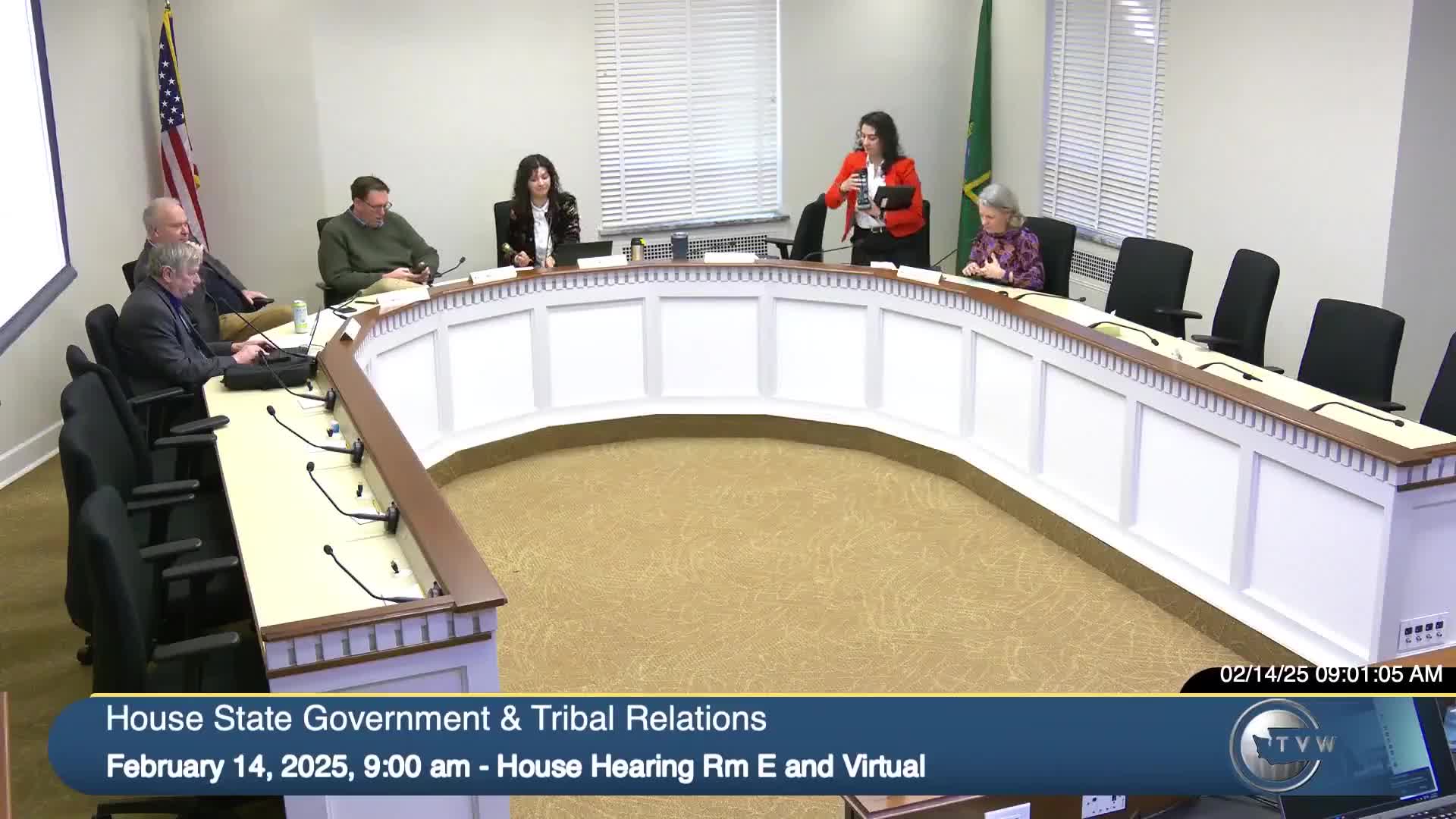Committee approves bill tightening voter-registration cancellation rules, reduces penalty for false challenges
Get AI-powered insights, summaries, and transcripts
Subscribe
Summary
The State Government & Tribal Relations Committee on Feb. 14 reported House Bill 1916 out of committee with a due-pass recommendation after adopting two amendments that change when county auditors cancel registrations and lower the penalty for knowingly providing false information in a voter-registration challenge.
The State Government & Tribal Relations Committee on Feb. 14 voted to report House Bill 1916 out of committee with a due-pass recommendation after adopting two amendments that narrow when county auditors may cancel a voter registration and change the criminal penalty for knowingly submitting false information in a voter-registration challenge.
The bill, as amended and reported, revises list-maintenance procedures by specifying that a county auditor may cancel a Washington voter registration only after verifying that a more recent registration the individual submitted in another state matches information in the Washington voter registration record. The committee also adopted an amendment that lowers the criminal penalty for knowingly providing false information as part of a voter-registration challenge from a perjury-level felony to false swearing, a gross misdemeanor, and sets a maximum fine of up to $10,000.
Representative Dolio, who moved one of the amendments, said the language “aligns what actually goes on in an auditor’s office, around voter cancellation,” and that auditors have agreed the change reflects current practice. Representative Waters, who moved the penalty amendment, described it as a change that “simply takes it from a felony to a gross misdemeanor, but we're still keeping the penalty high,” saying the revised penalty allows judges discretion while maintaining significant consequences.
Representative Walsh opposed the bill and urged colleagues to reject it, saying, “Voter challenges are an essential part of our democracy. ... I am concerned ... that when we begin restricting the ability of the public to be engaged in our election process like this, to be a check and balance on our mail-in voting system, we go into places that are frankly limiting democracy.”
On the motion to report substitute House Bill 1916 out of committee with a due-pass recommendation, Vice Chair Stearns moved the measure. The committee roll call recorded four ayes (Representative Mena, Vice Chair Stearns, Representative Dolio, Representative Farvar) and three nays (Representative Waters — recorded as “nay without recommendation,” Representative Walsh — recorded as “nay, do not pass,” and Representative Chase — recorded as “nay, do not pass”). Staff announced the result as 4 ayes and 3 nays, and the bill was reported out with a due-pass recommendation.
The adopted amendments will be incorporated into the substitute bill as reported to the next stage. The committee did not vote to adopt additional changes beyond those two amendments during the executive session.
Clarifying details recorded in testimony and on the record include: the cancellation standard now requires that the out-of-state registration be the more recent registration; the verification is between the new registration’s information and the Washington voter registration record (not limited strictly to prior address or Social Security number); and the penalty amendment sets false swearing as a gross misdemeanor with a maximum fine of $10,000. The transcript does not provide statutory citations for the change in offense classification beyond the verbal description given by staff and Representative Waters.
The committee moved immediately afterward to open a separate hearing on a tribal gaming compact amendment. The substitute House Bill 1916 will proceed under the committee’s usual legislative process as the Legislature considers subsequent steps.
